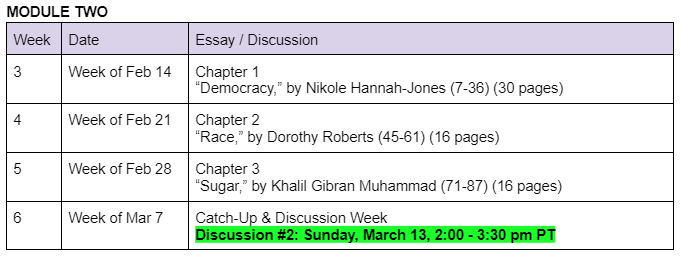1619: “Race,” by Dorothy Roberts
Week 4: Codifying racial caste by regulating sex and punishing Black women
Hi Book Clubbers! Hope you’re having a good weekend. Thank you for reading “Democracy,” sharing your learning in the comments, and reaching out to me privately. I’m very lucky to be doing this book club with you.
Before launching into this week’s essay: I’ve heard that some of you are receiving emails in your promotions tab. What to do? Some ideas:
Add articleclub+1619-book-club@substack.com to your contacts.
Mark 1619 emails as “not promotions” and drag them into your inbox.
Watch this video (1:45 long) with more advanced tips.
Get rid of your promotions tab entirely (go to settings, then inbox).
Now it’s time to dive into this week’s reading. Here’s our schedule.
This week, let’s read “Race,” by Dorothy Roberts. It’s a harrowing chapter about how the American caste system was constructed through slavery and legislation that defined race, regulated sex, and punished Black women. Prof. Roberts traces the legacy of anti-miscegenation laws and emphasizes how Black women have long resisted domination of their bodies.
This week
Read “Race,” by Dorothy Roberts.
Recommended: What idea do you want to talk more about? Please share it in the comments.
Also, please feel free to reach out. All you need to do is hit reply. Let’s build momentum and make this book club a deep and transformative one. Thank you and have a great week!







There is just so much to discuss. A couple of things come to mind - the first is what Ziba mentions - how might we discontinue the use of race categories, while understanding the way racism plays into outcomes. The other is the intersectionality of race and gender and how it continues to play out with sexual abuse cases. It’s by design of course. Perhaps there’s not much to actually discuss in the latter.
The beginning of this fascinating chapter suggests that racial categories have outlived their purpose. But without them we would not be able to document or oppose ongoing racial disparities. We need that data to prove discrimination in housing, lending, employment, healthcare, education and so on.